Education
At the heart of CAAT, we deeply believe in the power of education and the role it plays in driving our mission forward. Our range of online and on-campus programs are designed to foster an understanding of humane science and the essential principles of the 3Rs – Replacement, Reduction, and Refinement – in the scientific community and beyond.
Online Courses
- Toxicology 21: Scientific Applications (Coursera): Acquire knowledge on the modern concepts of regulatory toxicology that are revamping the field.
- Evidence-Based Toxicology (Coursera): Learn the principles of evidence-based medicine and its application in toxicology.
- Refinement of Animal Experimentation: Essential to Reduce Animal Suffering and Enhance Scientific Rigor (2 credits, 3rd term): Gain a deeper understanding of ways to reduce animal suffering and enhance scientific rigor.
- Animals in Research: Law, Policy, and Humane Sciences (3 credits, 4th term): Critically appraise animal models and non-animal methods to choose the most suitable for your research.
- Animal Ethics (1 credit, 4th term): Explore the ethical considerations surrounding animal research.
In-person Programs & Courses
- Alternative Methods in Animal Testing (3 credits, 3rd term): Discusses and evaluates strategies for reducing the number of animals utilized in basic and applied research. Addresses traditional in vitro methods, including cell culture and analytical chemistry as well as newer and evolving techniques such as informatics, genomics, proteomics, and metabolomics.
- Humane Sciences and Toxicology (Certificate Program): Complete this curriculum to receive a certificate recognizing your competency in humane sciences and toxicology policy.
The Bloomberg School of Public Health also offers a Master of Science in Toxicology for Human Risk Assessment.
Expanding the Scope
The reach of CAAT’s educational programs extends to industry as well. Our Green Toxicology collaboration, spearheaded by Dr. Alexandra Maertens, offers a wealth of educational activities tailored to the needs of industry professionals. Notably, our work has even been recognized by Apple, where our faculty member, Thomas Hartung, serves as a scientific advisor, contributing to their efforts to minimize or eliminate toxins from their products and supply chain.
Origins of the 3Rs
The Principles of Humane Experimental Technique by W.M.S. Russell and R.L. Burch – Full Book
